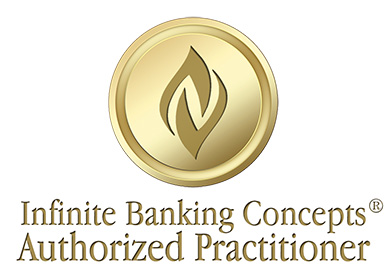“This might be the best investment you’ve never heard of.”
– Kevin Nichols, private equity fund manager
Are You an Investor Seeking Stock Market Alternatives?
We think that people are tired of the word “investment” meaning only the stock market. In broker-dealer circles, even “alternative” investments often refers to products within the mutual fund world, such as REITs (Real Estate Investment Trusts that are securities, not property) or mutual funds that invest in precious metals.
By contrast, life insurance is an entirely different beast, based on actuarial math rather than the rising and falling of stocks, funds, and indexes (though NOT classified as an “investment.”) However, there is a life-insurance based investment that has been gaining popularity with many corporate and sophisticated investors: life settlements.
Hedge funds, pension funds, multi-national banks, and other major financial corporations purchase life settlements. Even Warren Buffet invests in life settlements. According to Affluent Magazine, “Berkshire Hathaway invests $600 million annually in life settlements and even has owns a private company that sells life settlements.”
Life settlements are not for everyone, but they are worth serious consideration if you are in a position to invest in them. Read on to discover the basics of life settlement investments, the pros and cons, and who is a good candidate to benefit from them.
Life Settlement Facts and FAQs
What is a Life Settlement, anyway?
Just like a real estate deed or a mortgage contract are assets that can be sold, so life insurance contracts are also saleable assets. SEC.gov gives this basic definition of life settlements:
In a “life settlement” transaction, a life insurance policy owner sells his or her policy to an investor in exchange for a lump sum payment. The amount of the payment from the investor to the policy owner is generally less than the death benefit on the policy, but more than its cash surrender value.
The investor (which may be an individual, a private equity fund, or an institution) then maintains the policy, pays any additional policy costs or premiums, and collects the death benefit when the insured passes.
Of course, the investor takes into account the insured’s life expectancy (age and health) and the terms and conditions of the insurance policy. They also must verify that the policy will meet the conditions of a legal life settlement, as policies purchased under false pretenses or only for the purpose of re-selling to an investor may be uncollectible.
Why would someone want to sell their life insurance policy?
There are many reasons that someone may no longer need or want their life insurance policy. Some common reasons:
- A spouse may have passed and other children/heirs are self-sufficient
- The insured may have divorced or have no heirs they wish to leave assets to
- Funds may be needed to pay for long-term care or healthcare costs
- Changes in estate or tax law may cause an individual to consider lapse or surrender of a policy
- The policyowner has fallen behind in payments or wishes to halt remaining premium payments
- A desire for cash arises, whether to purchase a retirement home or fund a grandchild’s college tuition.
For whatever reason, the current policy owner decides they would rather have a cash windfall than the insurance policy. They wish to trade their death benefit for a living benefit that they can use in their remaining years.
How long have Life Settlements been around?
Ina Supreme Court ruling dating back to 1911, Justice Oliver Wendell Holmes Jr. delivered the majority opinion that would lay the groundwork for life settlements. The ruling came in the case of Grigsby vs. Russell and established life insurance contracts as saleable assets.
R. L. Russell was the executor of John Burchard’s estate. Burchard had passed away about a year after an operation. However, in order to afford the operation, Burchard had sold his life insurance policy to Dr. Grigsby in exchange for the operation plus $100. When the insurance company paid Dr. Grigsby instead of the estate, Russell filed suit to have the proceeds paid to the estate.
The case went all the way to the Supreme Court, and the court affirmed that Burchard had the legal right to sell his policy and Grigsby had the right to purchase it.The essential issue at the heart of the opinion delivered by Justice Holmes is contained in this brief excerpt:
“…(L)ife insurance has become in our days one of the best recognized forms of investment and self-compelled saving. So far as reasonable safety permits, it is desirable to give to life policies the ordinary characteristics of property…To deny the right to sell except to persons having such an interest is to diminish appreciably the value of the contract in the owner’s hands.”
The practice of buying and selling policies became much more popular in the 80’s with the rise of the HIV virus. “Viatical settlements,” as they became called, allowed a terminally ill policyowner to sell their life insurance policy for more than the cash surrender value.
In the years since, life settlements, also known as “senior settlements,” became popular both with institutional investors and very elderly or unwell seniors who wished to sell their insurance policies.
Do Life Settlements belong in Your Portfolio?
What are the advantages Life Settlements for investors?
Attractive rates of return: When we say “a good investment is one that generates double digit interest rates with no loss of principle,” we’re thinking about life settlements.
Safety and Stability: Returns are not tied to the performance of the stock market, housing market, interest rates, politics or any other external factor. If death and taxes are sure things, then a life settlement is a nearly bullet-proof investment.
A true “win-win” investment: Seniors that no longer want or need their permanent insurance policies can always surrender them in exchange for the cash value, but if they can sell the policy for more, they benefit. Investors and the seniors who sell their policies both benefit.
How can I buy Life Settlements?
There are three basic ways that Life Settlement investments are bought and sold:
- Direct Purchases of Life Insurance policies. This requires a large outlay of cash along with expertise to buy the right policies. For those wishing to invest a million dollars or more, this can be an option. It may also be the most efficient in terms of costs, however, life settlements require expert analysis and are NOT a “do-it-yourself” project.
- Direct Fractional Life Settlements. With Direct Fractional life settlements, larger policies are divided up into smaller portions and sold individually to investors. Each investor owns a portion of the policy, or in many cases, several policies. This may be an appropriate option for an Accredited Investor who can invest a hundred thousand or more.
- A Life Settlement Private Equity Fund. In this option, the investor is purchasing a portion of a fund comprised of hundreds of policies. One advantage to this is diversification. If a an investor purchases only one or two policies (or direct fractional portions of policies), their return will be less predictable than what a fund can deliver.
Are there disadvantages to investing in Life Settlements?
Yes, a main disadvantage is that they are simply not available to most investors.Life Settlements are highly regulated, and at this writing, direct or direct fractional policies can only be sold to accredited investors. (The recent JOBS Act has opened a window for that to potentially change, but it will take time to see how the act will be interpreted where alternative investments are concerned.)
Accredited investors include individuals, banks, insurance companies, employee benefit plans, and trusts. For an individual to qualify, they must earn $200k per year ($300k joint income), or have a million dollars in net worth.
The availability of certain life settlement investments also varies state-to-state. As of this writing, direct fractional life settlements are not available in most states. (You can contact us to see if they are available in your state.)
Funds must be committed for the duration of the investment. Another potential disadvantage is that money will typically be tied up in a life settlement investment for several years, such as 7, 8, even 10 years. Even with a life settlement fund, it is not like a mutual fund that people can buy and sell at will. Private equity funds have a start date and an end date, and it is possible but not simple or advantageous to pull your money out early.
Life settlements must be selected and managed correctly. Life settlements are a sophisticated investment that requires expert selection, management, and oversight.
For instance, there must be funds to maintain the policies or they will be cancelled. And it is essential that the policies were originally purchased and later sold legally, or losses will be incurred.
If Life Settlements are so great, why haven’t I heard of them?
Most financial advisors aren’t aware of true alternative investments. If they work for a brokerage firm, they typically have limited options in the types of investments sold, and not educated about nor allowed to sell outside of what the brokerage firm offers.
Do you want to find out more about Life Settlements?
Contact us to determine suitability and for more information. We can give you access to educational videos that will explain more about life settlements.
©Prosperity Economics Movement




